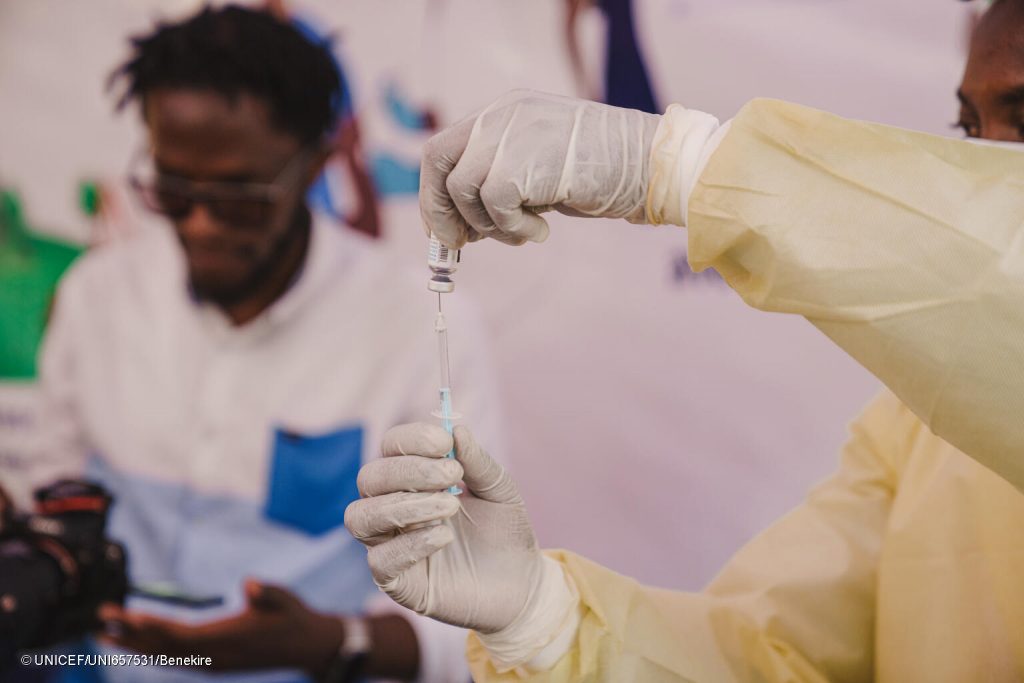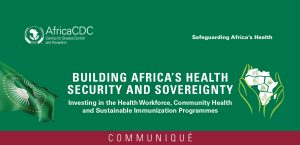A drug currently approved for smallpox in the U.S. will undergo clinical trials to treat patients infected by the Mpox viruswho are at risk of severe complications in the Democratic Republic of Congo and neighboring countries, starting in the fourth quarter of this year.
The MpOx Study in Africa (MOSA) will evaluate the safety and efficacy of brincidofovir, an antiviral developed by global life sciences company Emergent BioSolutions. Brincidofovir has not yet been tested in double-blind, placebo-controlled studies for Mpox. This trial represents a significant advance in research on the viral disease, which spreads through close contact with an infected person or animal across Africa.
Emergent BioSolutions announced on November 6 that the clinical trial will be conducted and sponsored by PANTHER (the PANdemic preparedness plaTform for Health and Emerging infectious Response), under the leadership of the Africa CDC.
“We applaud Africa CDC and PANTHER for the launch of the ‘MpOx Study in Africa’ (MOSA), an important step in advancing research for brincidofovir, and are proud to support the trial with our brincidofovir antiviral treatment,” said Joe Papa, President and CEO of Emergent BioSolutions. “Emergent is committed to working with global partners to study and produce vaccines and treatments addressing all orthopoxviruses, including mpox and smallpox.”
Declared a Public Health Emergency of Continental Security on August 13, 2024, Mpox remains a significant health threat across Africa, particularly for vulnerable populations such as women, children, patients with mucosal lesions, and individuals living with HIV. Despite the urgent need, there is currently no approved therapeutic to treat Mpox and alleviate the suffering of those already infected and at risk of severe complications.
MOSA, a pan-African, randomized, platform-adaptive trial, demonstrates Africa’s leadership in addressing this urgent healthcare gap. The trial is funded initially by the European Union’s Horizon Europe program. The study protocol was reviewed in 2023 through the African Vaccine Regulatory Forum (AVAREF) collaborative process, ensuring compliance with the highest ethical and scientific standards. The innovative study design includes pre-planned interim analyses, allowing for rapid decision-making if early signs of futility or success are observed.
Professor Placide Mbala, a virologist and head of the National Biomedical Research Institute in Kinshasa, will lead the study. Patients from Equateur Province, particularly Bikoro and Mbandaka, will be enrolled, according to a spokesperson for the study. Nigeria, Central African Republic, Republic of Congo, and Cameroon are also considered as potential sites for the trial.
“Equateur has consistently reported a high number of cases. Recently, a high number of patients were also identified in Kinshasa. Other countries, such as Burundi, are also reporting significant case numbers alongside several African nations,” the spokesperson added.
The study researchers noted that brincidofovir is approved for use in adult and pediatric patients, including infants. “This is important as we may enroll children with measles co-infection who could have just been vaccinated against measles. However, we do not plan to enroll patients who have recently received a vaccination against Mpox,” the researchers stated.
“Africa is not just responding to the Mpox outbreak; we are leading the charge by spearheading research and development for Mpox therapeutics,” said Dr. Jean Kaseya, Director General of Africa CDC. “The MpOx Study in Africa is a groundbreaking step toward developing an effective treatment that will save lives. This goes beyond research—it’s about African ownership and leadership in tackling our continent’s health challenges through essential research.”
“The launch of MOSA marks a significant stride in the fight against Mpox and underscores Africa’s leadership in global health research and innovation,” said Prof. Samba Ousmane Sow, Director General of the Centre for Vaccine Development in Mali (CVD-Mali) and President of the Board of PANTHER. “Our collaboration with Africa CDC will not only address an urgent health crisis but also set a new standard for African-led research initiatives.” The study includes regular interim analyses, which can drive a decision to stop early for either lack of efficacy or high probability of success. The first interim analysis is expected in early 2025.







